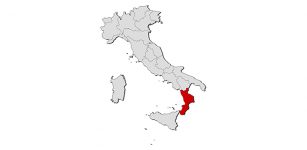Italian Mafia Alive and Well in Australia

A member of the ‘Ndrangheta, or the Calabrian mafia, testified in an Italian court that members of the organised crime syndicate have been sent to Australia for many years to establish and operate highly lucrative drug and weapons trafficking cells.
Domenico Agresta testified against his family and other members of the Calabrian mafia last month after deciding last year to collaborate with Italian authorities.
Australian network
Anti-mafia prosecutor Dr Stefano Castellani stated to the media that, “Agresta has confirmed that also in Australia there are members of the ‘Ndrangheta, members of his family, that emigrated to Australia and have established in Australia at least two different locales in Australia.
A ‘locale’ is an organised crime cell normally consisting of three or four families living in the same area.
Dr Castellani believes the Calabrian mafia have been able to establish powerful drug and weapons trafficking networks in Australia through their links to members in Italy, and Central and South America
Local crime landscape
Anna Sergi, a lecturer in criminology at the University of Essex and an expert on the ‘Ndrangheta’s global networks, says Agresta’s testimony is further evidence of the group’s intention to make Australia one of its primary areas of operation.
She explains that Australia is seen by those abroad as a lucrative region, given our high rate of drug use, and the exorbitant street price for illegal drug and weapons compared with other countries.
“The ‘Ndrangheta clans are strong enough and powerful enough and wealthy enough to absorb the risk in the trafficking,” she outlines.
Legitimate business interests
The Calabrian mafia often launder the proceeds of their crimes through the purchase and operation of legitimate businesses, some of which have been successful in their own right.
“There is an investment in legal companies across the country, which go from winemaking to green energy, and all sorts of other local trades,” Dr Sergi explains. “Local penetration into society is quite deep and it’s not just a criminal phenomenon on the street.”
Legal loopholes
According to Dr Sergi, Australian lawyers have assisted mafia members to exploit legal loopholes such as inconsistencies between jurisdictions and the lack of cross-jurisdictional information sharing and prosecutorial arrangements to stay one step ahead of local authorities.
“The federal police, in my view, [are] the only ones who have the human capacity and the legal capacity to investigate across borders, but their set of interventions is limited,” she stated, adding that Australian state and territory police are limited in their powers.
“You have a number of crime commissions, but they are supposed to keep their investigations private because they are intelligence-led. They are sometimes investigating people others have investigated, and that is a waste of energy and efforts and money.”
She asserts that anti-association and anti-consorting laws have had no effect on the Calabrian mafia here in Australia, pointing out that while motorcycle groups exhibit clear evidence of affiliation, this is not the case with the mafia who actively conceal their membership,
Police inaction
In Dr Sergi’s view, Australian authorities have turned a blind eye to the actions of the Calabrian mafia, preferring instead to focus on “outlaw bikie gangs” and middle-eastern crime.
She sees this as a grave error, as international crime organisations have a far greater impact on crime than small local groups.
Former AFP Commissioner Mick Keelty estimates that the Calabrian mafia is responsible for importing a whopping 60 per cent of all drug into the East and South coasts of Australia. The ‘Ndrangheta has also been identified as the biggest importer of methamphetamines, including ice.
Yet no specialist task forces have been established to combat the organisation, unlike the various ones established to target motorcycle and middle-eastern groups.
Public corruption
Commentators suggest that a reason for this inaction is the fear that the mafia will expose the corrupt conduct of politicians and others in positions of power.
An investigation by Four Corners reported that the ‘Ndrangheta had used several well-known political party donors to put a “legitimate public face” on its activities. According to the report, these donors lobbied on behalf of mafia figures to host both Liberal and Labor events, providing funds and benefits to political parties by exploiting loopholes in our systems of donations.
“As it stands, political parties and candidates can receive significant support and financial contributions through avenues not covered by the statutory disclosure regime,” an AFP report found. “’Loopholes’ in the oversight system mean it is “difficult to identify any bribery in the form of political donations”, the report added.
According to a police intelligence reports circulated to state agencies between 2003 and 2014, a mafia boss paid $2.2 million in bribes to NSW judges with a view to getting lighter prison sentences for members.
“IOC groups in NSW have infiltrated members into, or recruited people from, public organisations, government and law enforcement agencies with the lure of money,” another report alleged.
So while parliament continues to pass laws criminalising motorcycle group members and targeting middle-eastern and other selected groups, legitimate questions are being raised regarding why the issue of Italian organised crime rarely gets a mention.







